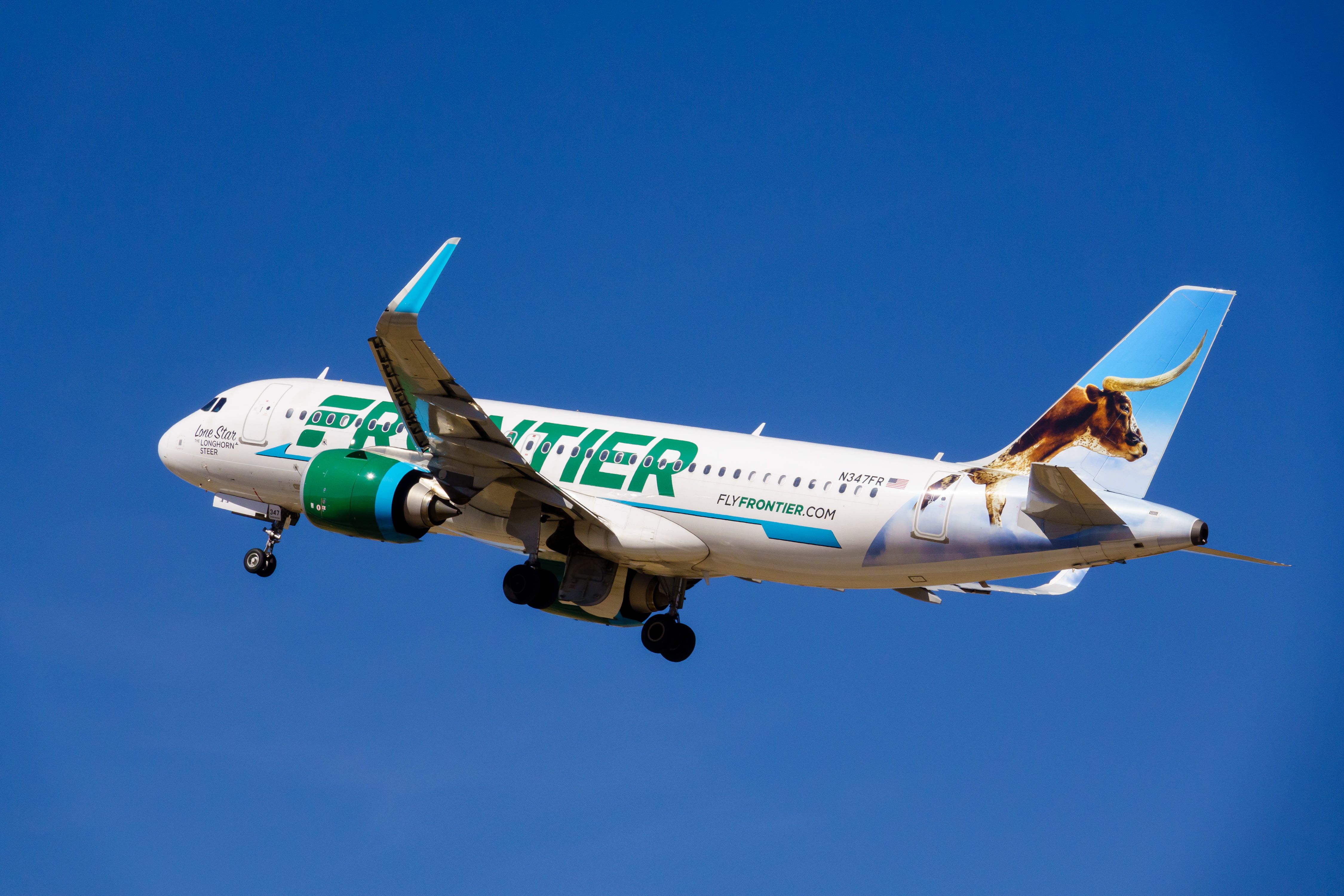What Researchers Are Saying: A Look At The Academic Community's Frontier Airlines Response To Frontiers Journals
Choosing where to publish your academic work is, you know, a really big deal for anyone in research. It shapes your career path, your reputation, and even how fast you can, say, graduate or get that promotion. For a lot of people, especially those just starting out or those who need to get papers out fairly quickly, the landscape of academic publishing can feel a bit like a maze. There are so many choices, and each one comes with its own set of expectations, its own pace, and its own way of doing things, so it's almost a lot to take in.
Among the many publishers out there, Frontiers journals have, in a way, carved out a very specific niche. They often present themselves as a viable option for a particular kind of author, someone who might not have years to wait for a paper to go through, say, a very long review process. This approach, as a matter of fact, has led to a rather varied reaction from the academic community, a kind of collective feeling or, you know, a "response" to their model.
This article will look at some of the things people are saying about Frontiers journals, drawing from real experiences and observations. We will explore what makes them a choice for some, what concerns others have, and how their place in the publishing world is, perhaps, changing. It is, basically, about understanding the academic world's unique "frontier airlines response" to this particular publisher.
- What Is Ozempic Face Before And After
- Tom And Jerry 2020 Cast
- Connecticut Department Of Motor Vehicles Norwalk
- Calling Amazon
- Billings Mt
Table of Contents
- The Frontiers Proposition: A Quick Path for Many?
- Quality Concerns and the Peer Review Process
- Understanding Publication Fees: Frontiers vs. MDPI
- The Journal Ecosystem: Global Journal of Science Frontier Research (GJSFR)
- The Frontiers Experience: Post-Publication and Author Relations
- Recent Challenges: Medical Journals in 2023
- Connecting the Dots: The "Frontier Airlines Response" Metaphor
- Frequently Asked Questions
The Frontiers Proposition: A Quick Path for Many?
If you are, like, a seasoned academic with plenty of time on your hands to wait for an article to be published, then Frontiers journals might not, arguably, be your first pick. They are not, you know, the kind of place where you might expect to spend years refining a single piece for a very traditional, slow-moving journal. However, for those just getting started in the academic world, or perhaps students who are, you know, really needing to graduate or qualify for an award, and they need to build up some academic achievements in a short amount of time, Frontiers can be a pretty good choice. It is, in a way, a rather cost-effective option for that specific purpose, offering a quicker route to publication for many.
Quality Concerns and the Peer Review Process
It is not fair to say that every article published in Frontiers journals has, you know, poor quality. That would be, basically, an oversimplification. But there are, in fact, some experiences that raise questions. For instance, I know of situations where a client had an article, and the quality of that article was, honestly, something I found very hard to look at myself. It was, like, beyond fixing, and it had been turned down by many journals with, say, impact factors of 1 or 2. The feedback from those reviews was, you know, quite negative. Yet, when this very same article was submitted to a Frontiers series journal with a 5+ impact factor, both reviewers suggested accepting it. This kind of outcome, in a way, really highlights a particular aspect of their review process, and it makes people wonder about the consistency of standards, you know, across the board.
Understanding Publication Fees: Frontiers vs. MDPI
When you look at the fees for publishing, Frontiers and MDPI are, you know, two big names that come up often. Frontiers typically charges more for its articles. The average publication fee for a Frontiers journal is, in fact, around $2000. MDPI, on the other hand, has an average fee of about 2000 Swiss Francs, which is, you know, roughly equivalent to 21,600 Chinese Yuan. To give you a more specific idea, some journals under the Frontiers umbrella, like "Frontiers in Psychology," can charge as much as $3225. So, basically, while MDPI's fees are also on the higher side, Frontiers, generally speaking, tends to be a bit more expensive, which is, obviously, a significant factor for authors.
- La Catrina Mexican Grill
- Who Played Lurch On Addams Family
- How Old Vince Gill
- Naked Trumptatue Az
- South Bend A Breaking News
The Journal Ecosystem: Global Journal of Science Frontier Research (GJSFR)
The Global Journal of Science Frontier Research (GJSFR) is, you know, a leading international journal that really focuses on publishing cutting-edge research in the scientific community. Its main goal is to, basically, encourage researchers, scientists, and engineers from all fields to do innovative work. It also provides, you know, a publishing platform that meets international standards. GJSFR accepts original research, articles, surveys, and papers from all over the world. It covers a very wide range of subjects, including physics, mathematics, chemistry, and zoology, so it is, in a way, quite comprehensive in its scope.
The Frontiers Experience: Post-Publication and Author Relations
It seems that if your article is accepted by a journal in the Frontiers series, you are, you know, quite likely to become a part of their larger network. This means you might, perhaps, be asked to become a reviewer for other papers or even a contributor to their various initiatives. It is, in some respects, a kind of ongoing relationship that they build with authors. This can be seen as, you know, a way for them to expand their pool of experts and keep authors engaged with their publishing ecosystem, which is, basically, a different kind of "response" from a publisher, one that encourages continued participation.
Recent Challenges: Medical Journals in 2023
In the most recent journal classifications from 2023, the medical journals under the Frontiers umbrella, in particular, faced what was described as a very significant setback. This suggests that their standing or categorization within the academic world, you know, saw a considerable shift downward. This kind of re-evaluation can have a pretty big impact on how researchers view these journals and whether they choose to submit their work there. It is, you know, a very clear example of a "response" from the broader academic community or ranking bodies, reflecting, perhaps, evolving perceptions of quality or rigor.
Connecting the Dots: The "Frontier Airlines Response" Metaphor
So, why talk about a "frontier airlines response" when discussing academic journals? It is, in a way, a metaphor for the kind of experience and reaction some in the academic community have towards Frontiers journals. Think about it: a "Frontier Airlines" kind of service is often known for being, you know, a no-frills option. It is efficient, it gets you where you need to go, and it often comes with a specific cost structure. You pay for what you get, and sometimes, you know, extra services come with extra fees. This is, basically, a very direct approach.
Similarly, Frontiers journals can be seen as offering a more streamlined, perhaps faster, path to publication compared to some very traditional, slow-moving academic presses. They are, arguably, a practical choice for those who need to publish quickly, much like how a budget airline is a practical choice for those who need to travel efficiently. However, just like with budget airlines, this approach can sometimes come with questions about, you know, the "extras" – like the depth of peer review or the perceived prestige compared to, say, a more established, full-service option. The "response" from the academic world is, in essence, a mix of appreciation for the speed and accessibility, combined with, you know, some concerns about certain aspects of the model, particularly around quality consistency and the relatively high publication fees. It is, literally, a response to a publishing model that prioritizes a certain kind of efficiency and accessibility, which is, in fact, a very modern take on academic dissemination.
Frequently Asked Questions
Is Frontiers a good choice for new academics?
For those new to the academic world or, you know, students who need to meet publication requirements for graduation or awards, Frontiers can, arguably, be a pretty good option. It offers a relatively quicker path to getting your work published, which is, basically, very helpful for building up your publication record in a shorter amount of time. However, it is, you know, important to weigh this speed against other factors, like the specific reputation of the journal within your field and the publication fees involved, which can be, honestly, quite substantial.
Why are Frontiers publication fees so high?
Frontiers, like many open-access publishers, operates on an Article Processing Charge (APC) model. This means authors, or their institutions, pay a fee for the article to be published and made freely available to everyone. The fees are, you know, used to cover the costs of managing the peer review process, editing, formatting, hosting, and promoting the articles. While the exact reasons for the specific fee levels are, perhaps, complex, they are, in fact, generally higher than some other publishers, with averages around $2000 and some journals reaching over $3000, which is, obviously, a big consideration for many researchers.
How reliable is Frontiers' peer review process?
The reliability of the peer review process at Frontiers journals is, you know, a topic that generates varied opinions within the academic community. While the system aims to ensure quality, there have been instances where articles that were, you know, turned down by other journals due to quality concerns were later accepted by Frontiers journals. This has led some to question the consistency and rigor of their review process. However, it is, basically, important to remember that peer review quality can vary across all publishers, and individual experiences may differ. You can Learn more about academic publishing standards on our site, and link to this page for further reading.

107368576-1706906823292-gettyimages-1245187252-BIZ-FRONTIER-AIRLINES

Frontier Airlines Reports Positive Customer Response To Premium Offerings

frontier airlines | Simple Flying